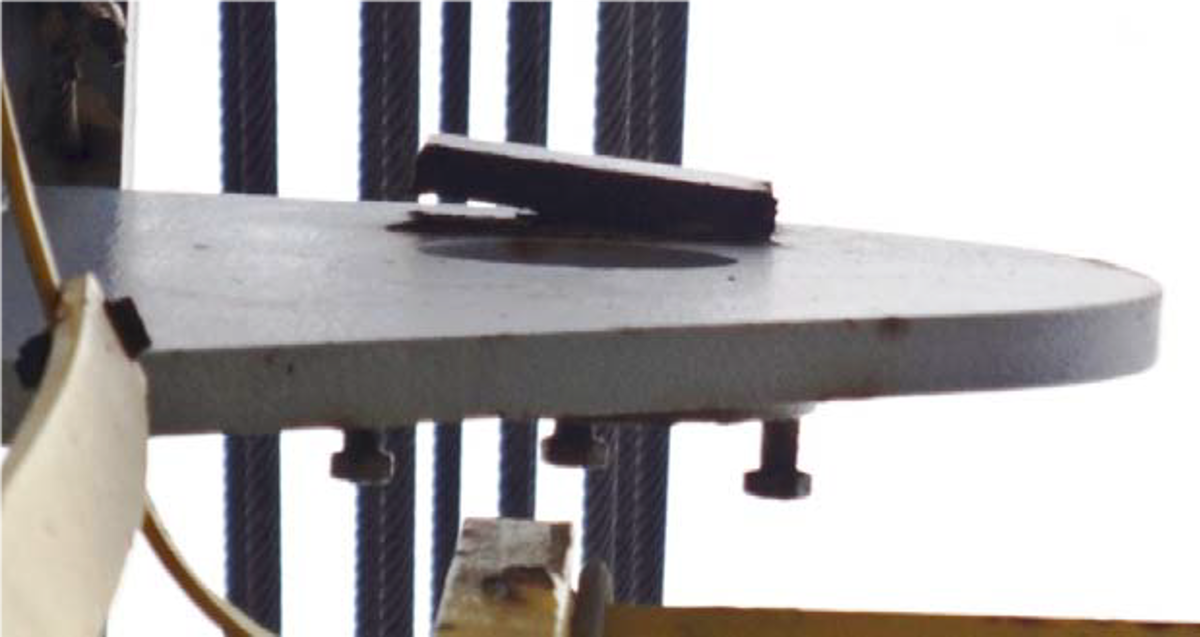Pro-active intervention prevented high potential dropped objects
- Safety Flash
- Published on 10 September 2018
- Generated on 10 February 2026
- IMCA SF 20/18
- 1 minute read
Jump to:
During inspection of the vessel crane, it was noted that a steel spacer plate had become partially detached due to corrosion forming behind the plate.
What happened?
The plate had been installed by the manufacturer during the crane installation but had not been removed as intended. On touching the spacer, it detached completely but was prevented from falling.

What went wrong? What were the causes?
The spacer plate had been present since original vessel/crane build. It weighed 1.5kg and had the potential to fall 40 metres to deck. The only means of attachment for the steel plate to the structure was by tack welding. This was an accepted form of attachment by the manufacturer for temporary use, but not for permanent equipment.
What lessons were learned?
- Be vigilant during dropped object reviews for items with similar method of attachment i.e. tack welded.
- Ensure that any identified items are securely attached.
- Report any incidents of non-continuous welding and obtain guidance on corrective actions.
- If required, adjust maintenance actions to monitor for corrosion.
Related Safety Flashes
-
IMCA SF 04/11
19 April 2011
IMCA Safety Flashes summarise key safety matters and incidents, allowing lessons to be more easily learnt for the benefit of the entire offshore industry.
The effectiveness of the IMCA Safety Flash system depends on the industry sharing information and so avoiding repeat incidents. Incidents are classified according to IOGP's Life Saving Rules.
All information is anonymised or sanitised, as appropriate, and warnings for graphic content included where possible.
IMCA makes every effort to ensure both the accuracy and reliability of the information shared, but is not be liable for any guidance and/or recommendation and/or statement herein contained.
The information contained in this document does not fulfil or replace any individual's or Member's legal, regulatory or other duties or obligations in respect of their operations. Individuals and Members remain solely responsible for the safe, lawful and proper conduct of their operations.
Share your safety incidents with IMCA online. Sign-up to receive Safety Flashes straight to your email.